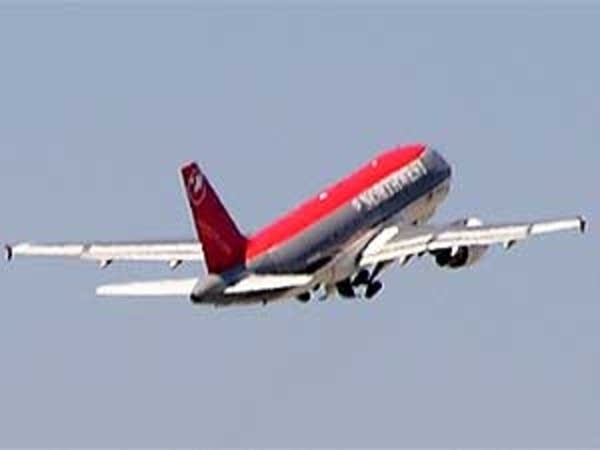Merger pressures likely to continue despite US Airways dropping bid for Delta
Go Deeper.
Create an account or log in to save stories.
Like this?
Thanks for liking this story! We have added it to a list of your favorite stories.

The airports commission is considering a plan to reduce landing fees and give airlines more of the revenue that the commission collects from airport merchants.
Northwest would get most of the benefits. But the commission wants Northwest to make several commitments to the commission in exchange. They include promises to keep Northwest's headquarters and hub in the Twin Cities.
Negotiations between the MAC and Northwest have been clouded by speculation about airline mergers. If US Airways succeeded in grabbing Delta, it was widely believed other airlines would start pairing up to remain competitive.
United Airlines has made it no secret that they're ready to look for a partner. And don't forget Northwest has also put its toe in the water and is rumored to be interested in talking with Delta
But commission member Daniel Boivin says the demise of the US Airways bid for Delta does little to relieve the pressure on airlines to merge.
Turn Up Your Support
MPR News helps you turn down the noise and build shared understanding. Turn up your support for this public resource and keep trusted journalism accessible to all.
"I think it won't change anything other than people's perceptions that maybe we have some breathing room here," Boivin said. "But I still think the general consensus is that there will be consolidation, if not this year, sometime in the very near future."
There also have been unconfirmed reports of merger talks between Northwest and Delta. Northwest won't say if the two carriers have held negotiations. But Northwest has hired a merger consulting firm. The airline says it hired the firm so it could be prepared to respond to merger offers.
Northwest has said it plans to keep its headquarters and hub operations in the Twin Cities. But the company has also warned that those plans could change.
Airports commissioner Bert McKasy doesn't see the demise of the US Airways-Delta deal as helping the MAC in its negotiations with Northwest. McKasy expects mergers could still mean big changes for Northwest and its Twin cities operations.
"I have the same concerns regarding the hub and headquarters regardless of whether Delta and other airlines are talking or not," said McKasy. "I mean you just never know what will happen in the future and I wouldn't even begin to speculate."
With the economy relatively strong, the airline industry figures to be pretty profitable this year and next. But many industry analysts say the pressures to merge are intense: There are still too many airlines chasing too few passengers. That depresses prices. And some carriers, including Northwest, face huge costs as they replace aging planes.
Joe Schwieterman is an airline competition expert formerly at United Airlines, now at DePaul University in Chicago. Schwieterman says we could see some big mergers even this year.
"I'm not a betting man but if I were I would say in the next six months we'll have more big news come out," Schwieterman said. "United Airlines has made it no secret that they're ready to look for a partner. And don't forget Northwest has also put its toe in the water and is rumored to be interested in talking with Delta."
Citing unidentified sources The Wall Street Journal Web site reported that Delta's new board will be stocked with directors who favor consolidation--that is mergers--as a strategic option.
But some analysts expect it could be much longer before a merger mania strikes the airline industry.
"The mergers discussion will fade away probably for the next year or so," says analyst Vaughn Cordle.
Cordle says Northwest and Delta won't be interested in mergers with anyone until they leave bankruptcy--and executive compensation packages are locked in. Northwest hopes to exit bankruptcy by June. But in the long run, Cordle says airlines must merge because there are too many of them.
He says the timing of mergers will depend largely on oil prices. Cordle notes that high oil prices can quickly turn a profitable airline into a big money loser.
On the other hand, "the lower the price of oil, the higher the earnings for the group; the lower the price of oil, the less chance for mergers," Cordle said. But no matter what happens with oil, Cordle sees airlines getting into binds down the road that could force them into mergers. He says airline profits will fall steeply, for instance, as labor looks to recover huge wage concessions unions gave airlines in recent years.
Cordle may be right -- or wrong. It's hard to predict the future of the airline industry. Alfred Kahn, a Cornell University economist, knows that.
"That the kind of crystal ball gazing I don't have any qualification for," said Kahn, who is known as the father of airline industry deregulation.
As one-time head of the Civil Aeronautics Board in the 1970s, Kahn oversaw much of the airline industry's deregulation. The only prediction Kahn feels comfortable making about the airline industry's future is that it will be totally unpredictable.
"I said when I was chairman of the CAB that the main reason for deregulating was that no one could tell in advance what would prove to be the best, effective structure of the industry and the most effective method of operating," Kahn said.
With the future of Northwest and the airline industry still very much unclear, Northwest and the MAC are meeting this week to see if they can negotiate terms of a Northwest commitment to the Twin Cities.



